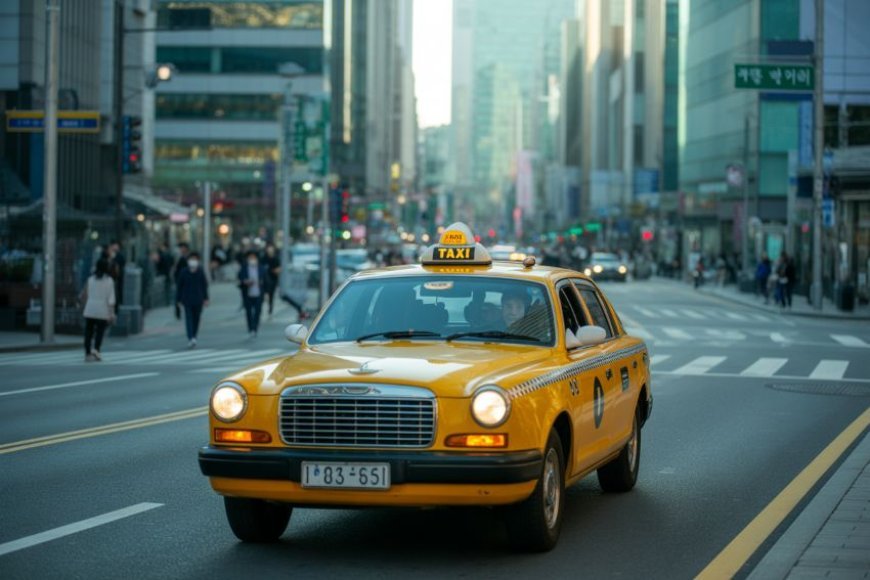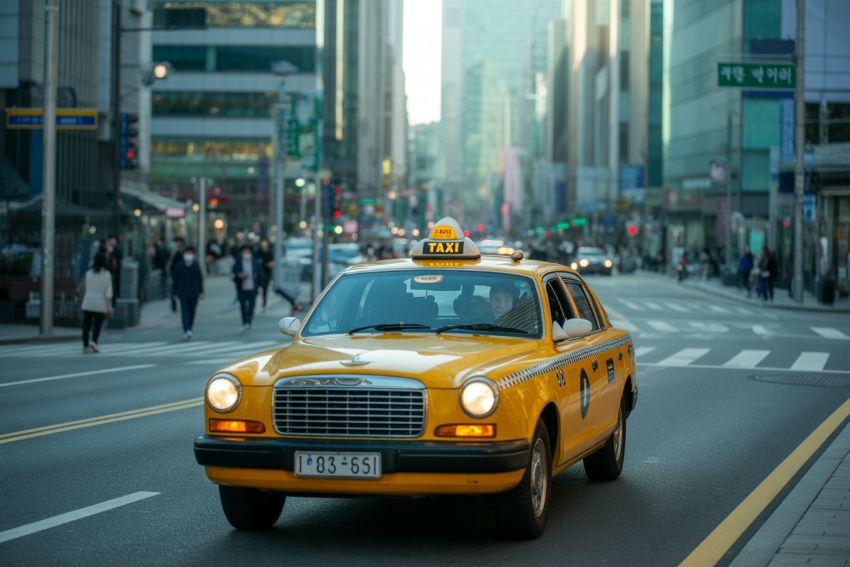Seoul Launches Hundred Day Crackdown on Unfair Taxi Practices Targeting Tourists


The Seoul Municipal Government has accordingly initiated a comprehensive intervention designed to shield international visitors from inequitable practices in the taxi sector. Deployment of the 100-day enforcement campaign, publicised on 6 August, is directed against illicit service patterns that have consistently affected the city’s incoming tourists. Given the imminent onset of the peak travel interval, authorities have advanced the programme to preemptively counter persistent complaints regarding excessive fares, refusal of brief-haul journeys, and related service deficiencies that foreign travellers routinely document.
Targeting Unfair Taxi Practices
The crackdown will focus on curbing several common taxi-related offences that negatively impact tourists. These offences include overcharging, the refusal of short rides, demanding tips, and other forms of exploitation typically experienced by foreign passengers. Such activities have been an ongoing issue at various points of entry, especially at major airports like Incheon and Gimpo, as well as in popular tourist spots such as the bustling Myeong-dong shopping district.
Authorities have expressed that the initiative aims to address these persistent problems and restore trust in the city’s taxi services. The crackdown will be especially concentrated at key transport hubs and tourist destinations throughout Seoul. Civil servants from the Seoul Metropolitan Government will be deployed to monitor and penalise taxi drivers who engage in illegal behaviour, including those who refuse to accept foreign passengers on short trips or charge rates that exceed the standard fare.
Focus on Tourist Hotspots
Seoul’s most prominent locations, such as Myeong-dong and nearby areas, will be under close scrutiny during this 100-day period. The aim is to ensure that visitors experience fair treatment from the moment they arrive. For example, tourists often complain about taxi drivers demanding inflated fares, particularly during the night, or refusing rides that are shorter than a certain distance. Such behaviours not only create inconvenience but also leave a negative impression on tourists, potentially affecting the city’s reputation as a top travel destination.
In response to these concerns, the Seoul government has committed to implementing a more rigorous enforcement regime. Taxi drivers found guilty of misconduct may face fines or other penalties, which are expected to serve as a deterrent to others.
Improved Reporting Mechanisms for Tourists
In addition to ramped-up enforcement, the municipal government has made it easier for tourists to report taxi-related issues. Passengers can now file complaints through survey cards distributed at major airports like Incheon and Gimpo. The cards are equipped with a QR code that links to an online survey, making it simple for foreign visitors to document their experiences. These cards are available in multiple languages, including English, Chinese, and Japanese, to ensure that all tourists can access the reporting system regardless of their language preference.
Such initiatives are part of a broader effort to address ongoing issues in the taxi industry. As of June 2023, authorities had already recorded a significant number of complaints, including 139 cases of overcharging at airports and 109 instances of taxi drivers refusing to pick up foreign passengers for short trips. These figures highlight the need for stronger regulation, especially as the number of international visitors to Seoul continues to rise.
Fares and Regulations for Taxis in Seoul
Seoul’s taxi fares are standardised, with a base fare of 4,800 won (approximately $4.50) for a ride up to 1.6 kilometres. Passengers are then charged an additional 100 won for every 131 metres travelled. For rides during the night, the base fare ranges from 5,800 won to 6,700 won, depending on the time of day. However, visitors often report discrepancies between these official rates and the fares they are asked to pay, particularly when dealing with taxi drivers who are less familiar with foreign tourists or when travelling at night.
The Seoul Metropolitan Government is committed to ensuring that all taxi drivers comply with the city’s established fare structure, and it hopes that the 100-day crackdown will serve as a catalyst for more sustainable improvements within the local transportation sector. This initiative is not the first of its kind; regular crackdowns have been in place since 2015 to address these persistent issues. However, with tourism numbers steadily increasing, the latest measure has been seen as a critical step in ensuring that the city remains a welcoming destination for international travellers.
A Step Toward a More Welcoming Seoul
The 100-day crackdown aligns with the city’s broader goal of improving the tourism experience for foreign visitors. The timing of the crackdown is particularly significant, as it coincides with the peak travel season in South Korea. This initiative not only seeks to address the ongoing issue of taxi-related complaints but also serves as part of a larger effort to enhance the overall visitor experience, contributing to Seoul’s standing as a major global travel destination.
The impact of this measure is expected to be far-reaching, with potential benefits for both tourists and local residents. By addressing issues like overcharging and poor customer service, the initiative is likely to improve the overall quality of transportation services in Seoul. As a result, tourists can expect smoother, more enjoyable journeys throughout the city, while taxi drivers who comply with the regulations may find themselves benefiting from a more positive reputation.
Looking Ahead: Continued Efforts to Improve Tourism in Seoul
The recent enforcement campaign illustrates only one front in Seoul’s wider strategy to enhance the visitor experience. While the spotlight on taxi regulation constitutes an essential element, parallel initiatives regarding lodging quality, language assistance, and visitor support mechanisms are concurrently under review. This multi-dimensional approach underscores the government’s resolve to uphold exceptional service standards, recognising that tourism increasingly underpins the nation’s economic dynamism.
The three-month enforcement interval will be followed by ongoing scrutiny and adaptation of the entire tourism ecosystem. By systematically redressing points of friction, whether in transport, accommodation, or hospitality, Seoul is poised to remain an appealing destination for the global travel market. Reliable and ethically operated taxi services, now in the spotlight, will therefore serve as an indispensable gateway, enhancing the city’s overall accessibility and visitor enjoyment.
The post Seoul Launches Hundred Day Crackdown on Unfair Taxi Practices Targeting Tourists appeared first on Travel And Tour World.






